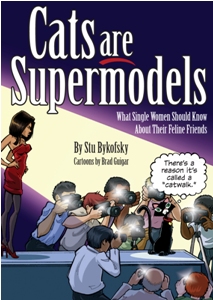Of all the animals that have whiskers, few seem as interesting as the cat. Maybe this is why some people have been drawn to clipping them off. If they just want to see what happens, I have a better way of figuring out what whiskers mean to your cat.
You don’t hear about dog whiskers being cut off, and I’m pretty sure no one is going after rat whiskers. But cats certainly have well designed and attractive ones. There are a lot of articles online that describe and explain them, and people should read these to appreciate their value to the cat.
One thing I did as a kid that instantly gave me a better understanding and appreciation of these “feelers” was to “try them on.” Anyone who has cats knows they shed hair, and whiskers are shed, too, as they are a specialized type of hair. When you find one somewhere, save it, and the next one. Rinse them in water or alcohol or something if you think they’re “dirty,” then put these two whiskers lightly into the corners of your mouth, root first. Now close your eyes and just feel your surroundings. You can feel subtle air currents, anything that comes close to you, and definitely if anything touches one. In fact, just touch one yourself. Try different weights of touch, from just barely to pretty strongly. Imagine if they are attached. You would not enjoy having them pulled on or pulled out.
Look at the whisker. Note that it is tapered. The thicker end is attached, by its follicle, to the extraordinarily sensitive lip area, and it narrows to almost nothing at the outer end. Feel it. It’s fairly thick at the base and very thin at the end. Try bending it. Brush one against your skin, your lip, your face.
Once you see and feel all the things that whiskers do, just imagine how much your cat depends on them. My blind cat kept hers pointed forward any time she was on the move, as they served her much like a blind person’s white cane.
Why would anyone want to take this special, often crucial, sense away from an animal?




2 Responses to Whisker Stress